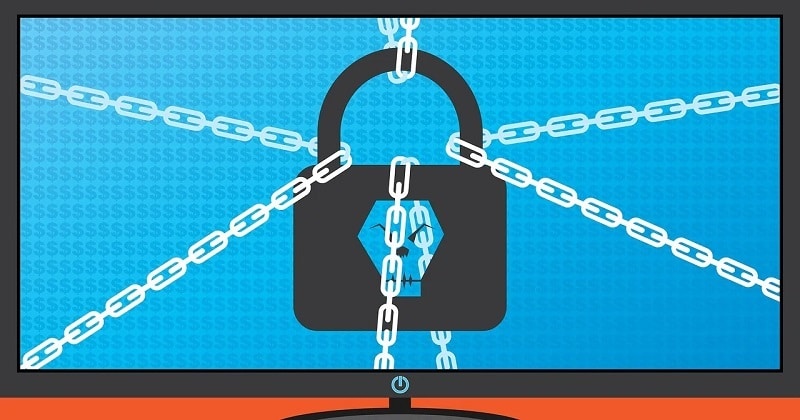Cybersecurity Risks Increase in Canada: Learn How To Protect Yourself

TechsPlace | In this era of technology, cyber crimes and threats are everywhere. Identity theft, robbing banks, and invading privacy can all be done using the internet. Cybercrooks and hackers are everywhere, waiting for the perfect time to invade your privacy, leaving you vulnerable increasing Cybersecurity risk and unprepared for the damages it can cause.
The worldwide web is a powerful tool that simplifies our lives and makes a dream come true, or perhaps a living nightmare too. Everyone is in total dependence on the internet. From school, businesses, organizations, and even daily lives are all powered by the internet.
So how can you protect yourself from cyber crimes and threats? We’ve gathered the most effective ways to secure your privacy and ensure all your digital footprints are protected.
How To Secure Your Privacy Against Cyber Threats And Crimes
If you live in Canada or anywhere across the FVEY or Fourteen Eyes, cybersecurity is vital not just to keep your privacy but also to keep all your sensitive data safe. Cyberthreats are everywhere, and you must know and understand how to secure your privacy. It can be tricky, but there are few effective ways to do it.
Some may require technical skills, but most of these tips and techniques are easy to execute, allowing you to improve your digital protection to the next level. For example, using a VPN (Virtual Private Network) is a top choice against hackers, threats, government surveillance, and more. You can check recommendations of top VPN available in Canada to give you a quick overview of the most reliable cybersecurity solutions.
Besides using VPN solutions, please avoid free VPNs as they are suitable for nothing, and you’re more vulnerable to threats than ever. Here are some of the things you might want to consider to secure your privacy.
- Keep Software Updated
Cybercrimes are executed with flawed or vulnerable software. Keep software, operating systems, or internet security tools updated. Patch flaws and exploits that may potentially be a target for cybercrimes.
If security breaches are associated with a website or business you are associated with, inquire what information cybercriminals had access to and update your password and security data immediately.
- Use Robust Passwords
Updating and changing passwords frequently can secure your sensitive data and information against potential hacks and threats. Don’t use repetitive passwords on multiple channels. Use complicated passwords with alphanumeric combinations.
- Use A Reliable VPN
Strengthen your digital security not just at home but whenever you’re connected to the internet. A reliable and robust VPN solution can provide powerful encryption to mask all your digital activities. It hides your identity against threats, secures you from viruses, malware, and intercepts any potential harm against your privacy and security.
Protect personal and sensitive information always. A VPN can provide your data security, especially when you access this information with a free or public connection.
- Manage Setting On All Social Media Platforms
Share less information on social media platforms. Limit personal data and sensitive facts about your personal life as hackers and cyber crooks can easily trace you with what information you upload online.
- Discuss Proper Internet Usage At Home
Discuss with kids what is right and not acceptable when using the internet. It’s better to educate kids of potential threats and ensure that they can come to you for anything, especially with harassment, bullying, or stalking online.
- Know What You Should Do If You Experience Threats
If you’ve been a cybercrime victim, immediately report it to authorities to provide you with the right assistance. YOU can also get in touch with banks and companies to know of any identity theft or fraud occurrence.
Prevalent Cyber Crimes And How To Prevent Them
To help you secure your privacy and personal data against cyberthreats, you must know the different kinds of cybercrimes.
- Identity Theft – Hackers that have access to your sensitive information can use this with various transactions online. If you’ve noticed any suspicious activities related to your bank or credit cards, report it immediately to authorities.
- Phishing Scams – This is a form of acquiring personal information from you via phishing sites, links, or messages. The act may ask for sensitive data like home address, email address, passwords, banking details, etc.
- Cyberstalking – Cyberstalkers can track all your online activities by infecting your devices with malware. Most stalkers harass victims and attempt to slander friends and colleagues about your personal information.
- Online Harassment – Online harassment can be in any form of threats via messages, posts, or emails. Aside from that cyberbullying is also a form of harassment that’s more frequent with teens and kids nowadays.
- Privacy Invasion – It’s the act of trying to invade your personal life. It can be in any form of hacking devices, emails, or tracking digital activities.
Conclusion
While protecting yourself against potential threats and cybercrime issues is more of a personal approach, these tips can safeguard you against hackers and threats. Once you do your part, you’ll have peace of mind knowing that your privacy and security is never compromised. Whether you are residing in Canada or not, it’s essential to be aware of the potential threats and ways to secure your privacy and secure your personal information at all times.
This article is contributed by guest author on techsplace.com.





